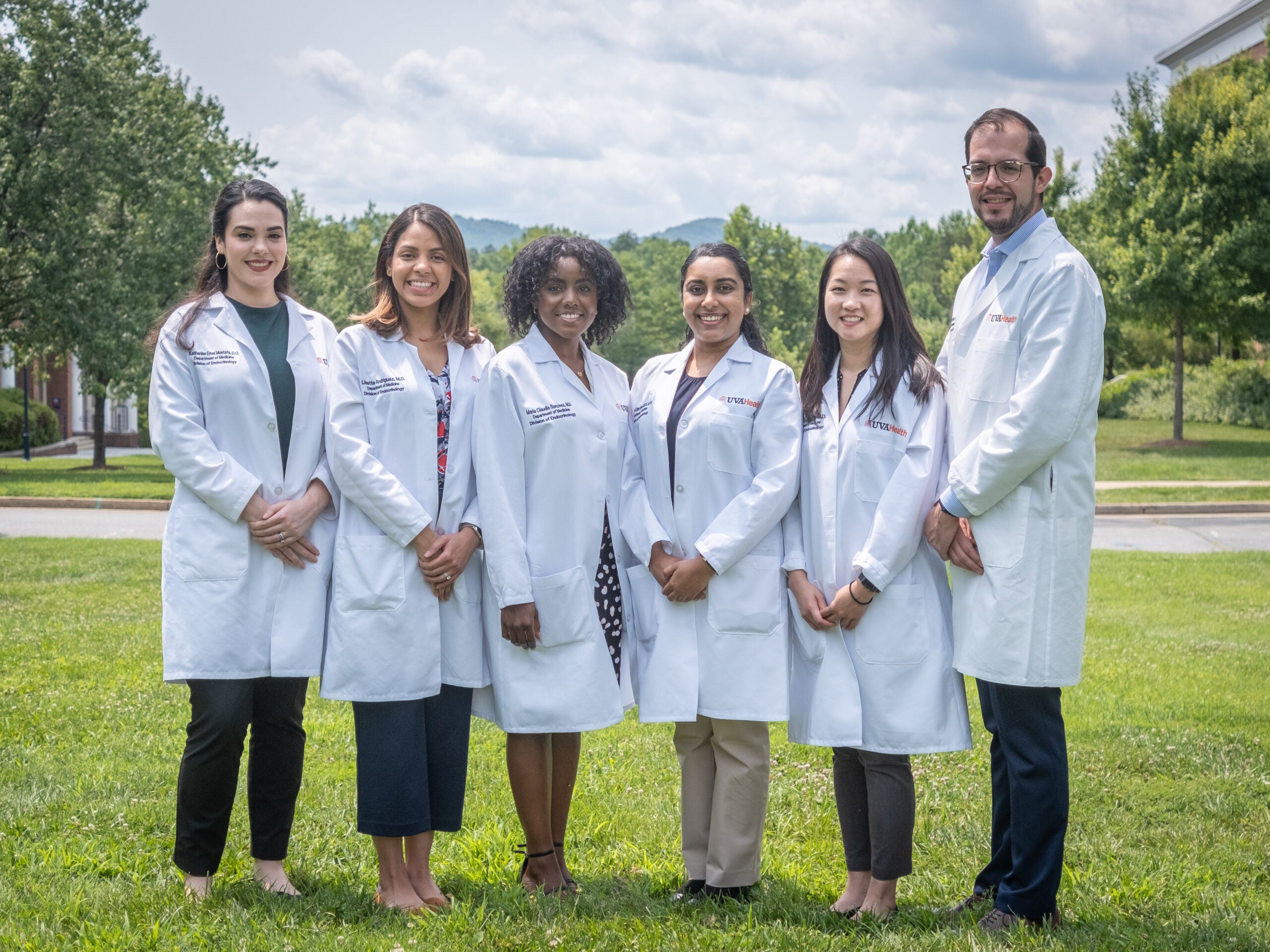Fellowship Program Mission Statement and Aims
Mission Statement: The major purposes of the Endocrinology and Metabolism Fellowship Program at the University of Virginia are (a) to educate and train outstanding endocrine subspecialist physicians to help people achieve healthy, fulfilling, and productive lives; and (b) to train the next generation of endocrine educators and scientists. A major goal of our program is train fellows for a career in academic endocrinology, although our fellows pursue careers with varying distributions of effort in clinical care, education, and scientific investigation. Through patient care, our program actively serves patients across the state of Virginia. However, through subspecialist physician and educator training, our program serves communities across the nation; and through endocrine scientist training, our program serves communities across the world. We achieve our mission through: (a) attracting an academically accomplished and compassionate group of trainees from various backgrounds; (b) creating a respectful and nurturing learning environment that also challenges fellows to learn and apply science and medicine at the most skillful level; (c) fostering humanitarian and caring attitudes that motivate us to give our best to maintain health and to alleviate pain and suffering; and (d) maintaining program faculty dedicated to preventing disease and treating illness, educating and inspiring future leaders in the field of endocrinology, and pursuing innovative biomedical research. Our mission statement is in keeping with those of the University of Virginia School of Medicine (https://med.virginia.edu/about/missions/education-mission/) and the Department of Medicine (https://med.virginia.edu/dom/about/welcome-from-the-chair/).
Program Aims: The aims of our Endocrinology and Metabolism Fellowship Program are: (1) to provide a broad, well-rounded educational experience in endocrine patient care, endocrine-related research, and teaching so that graduating fellows can successfully pursue endocrinology careers with varying distributions of effort in clinical care, scientific investigation, and education; (2) to mentor our fellows toward individualized career development and training in endocrinology; (3) to encourage critical thinking, sound decision-making, life-long learning, self-reflection and tolerance and respect of others; (4) to strengthen competencies achieved during residency (Practice-based Learning and Improvement; Interpersonal and Communication Skills; Professionalism; Systems-based Practice); (5) to teach fellows how to apply these competencies to an endocrine-specific practice; and (6) to address any perceived deficiencies.

2023-2024 Fellows from left: Kat Mustafa, Angela Vuong, Maria Sanchez, Rosalind Basil, Lisette Rodriguez, Nicolas Reyes
